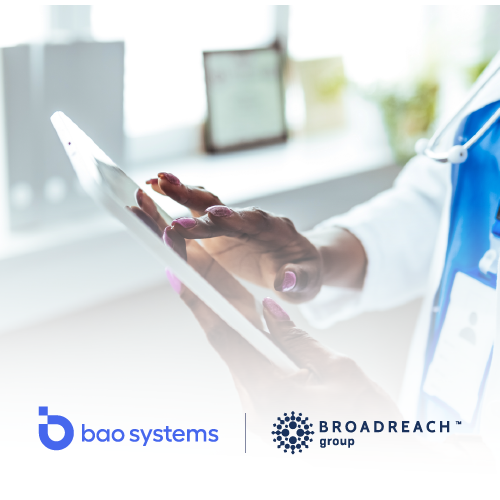
Log on and learn
16 Mar 2021By Megan Kill, Project Implementation & Training Manager at BAO Systems

“More people are postponing or cancelling their conferences” was a note I received over Slack in early March 2020. That couldn’t happen to our DHIS2 Symposium, I thought. This is all probably going to blow over soon, so I will still plan on travelling to Washington DC next week. Then news broke of the first community spread case of COVID-19; a rector at a church in Georgetown was symptomatic and had been participating in church services. Two days later, the decision was made to postpone the Symposium. However, the DHIS2 training, which was due to begin in a weeks’ time, was still going ahead, albeit online. I had a wealth of experience in developing online learning materials and with people training remotely, so I was actually excited about the opportunity! I thought, even though this will be an interesting experience for the BAO team, it will probably be a one-off, since in-person training will resume again soon once we get this virus under control. At the time I didn’t realize how wrong I was.
A month after the news of the Symposium postponement, with no end to the pandemic in sight, it became clearer that the next training course BAO was supposed to deliver was not going to be in-person either. With the success of the last virtual training and the collective experience we had with remote training and course development, why not shift gears with the pandemic and offer our training courses remotely? And why stop there? There is a wealth of evidence on the effectiveness of virtual and self-paced training and we should adapt. I have also spent over seven years developing online public health and DHIS2 courses, and training people remotely; it felt really natural to me to make the switch.
Debunking the myth
There were some doubts around the world about online learning being effective enough, and that in-person learning and education was superior. To address these doubts, I think it’s important to highlight the benefits that I have seen first-hand of online learning:
Benefit #1: Taking self-paced courses when the time is right for you
The ability and opportunity to take self-paced courses fits in with a core principle of adult learning: allowing adults to choose how and when they learn. As the learner, you choose when it works best to complete coursework, which will likely be times when you can more fully engage with the materials, rather than at a specified time, that may be inconvenient. The increase in flexibility is a huge benefit for the learner.
Benefit #2: Saves time and money
Since there is no travel associated with virtual or self-paced learning, money and time is saved on travel and accommodation. Maybe with the extra time and money you can take other courses?
Benefit #3: Allows for a more global audience
In the case of DHIS2, the platform is being used in over 100 countries. This means that there are data scientists, MoH employees, M&E specialists in each of these countries who need to know how to use DHIS2. Online learning allows for the participants to take the course in their own time zone. This ultimately means more learners can be reached and more information can be shared!
Benefit #4: Networking opportunities through online platforms
Online learning platforms offer the ability for you to communicate with other learners and facilitators through the course and beyond. These convenient online communication mechanisms offer a great way to meet and engage with DHIS2 community members and peers in other organizations, and exchange knowledge with individuals in a wider geographic region.
Benefit #5: No limit on the number of participants
Online training is scalable for any number of learners. This means that learning materials and courses can have a greater impact.
Benefit #6: Training consistency and standardization through self-paced courses
Each learner who takes a self-paced course will receive the same experience as the next learner.
Benefit #7: Reduces the environmental impact
A lot of businesses are trying to reduce their carbon footprint, and online learning provides an easy way to do so. Evidence from the International Journal of Sustainability in Higher Education suggests that distance learning courses involve 87% less energy and 85% lower CO2 emissions than in-person courses.
To say the next few years will be interesting is an understatement. However, there is one thing that is certain over the years to come: online learning is not going away. With the world coming to a standstill, at least we are still able to share information with each other and connect virtually. If I don’t see you at an in-person training, I hope to “see” you on a virtual training or self-paced course soon! To find out more about the training we offer, visit our website: https://baosystems.com/
Sign up today for your chance to meet Megan on April 30 when she will be facilitating the DHIS2 Aggregate Analytics online training.
Spotlight




